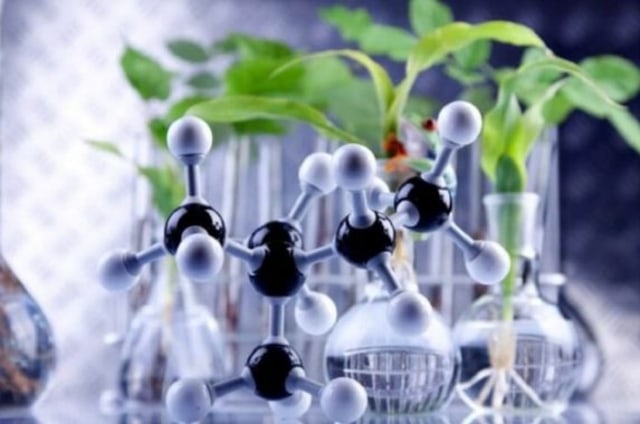Pemanfaatan Bioteknologi dalam Peningkatan Ketahanan Tanaman
Introduction
Plant resilience is crucial for sustainable agriculture and food security. In recent years, biotechnology has emerged as a powerful tool in improving plant resistance to various stresses. By harnessing the potential of biotechnology, scientists have been able to develop novel strategies to enhance plant resilience and productivity. This article explores the utilization of biotechnology in enhancing plant resilience and the benefits it offers in ensuring global food security.
 Source: bing.com
Source: bing.comUnderstanding Plant Resilience
Plant resilience refers to the ability of plants to withstand and recover from adverse environmental conditions, such as drought, salinity, pests, and diseases. It is a complex trait influenced by multiple genetic, physiological, and environmental factors. Enhancing plant resilience is crucial to ensure stable crop production and minimize yield losses. Biotechnology plays a significant role in improving plant resilience by harnessing the plant's own genetic potential and introducing beneficial traits.
 Source: bing.com
Source: bing.comGenetic Engineering for Stress Tolerance
Genetic engineering is one of the key techniques used in plant biotechnology to enhance stress tolerance. Through genetic engineering, scientists can introduce specific genes into plants that confer resistance to abiotic stresses like drought, salinity, and extreme temperatures. One example is the introduction of the gene encoding the enzyme trehalose-6-phosphate synthase, which enhances drought tolerance in crops by improving water-use efficiency.
 Source: bing.com
Source: bing.comMarker-Assisted Breeding
Marker-assisted breeding is another biotechnological approach used to improve plant resilience. It involves the identification and utilization of molecular markers associated with desirable traits for selection in breeding programs. By selecting plants with specific markers linked to stress tolerance, breeders can accelerate the development of stress-resistant varieties. This approach has been successful in developing stress-tolerant crop varieties with improved yields and quality.
Biopesticides for Pest and Disease Management
Biotechnology is also instrumental in developing biopesticides for effective pest and disease management. Biopesticides are derived from naturally occurring microorganisms or their metabolites and offer an environmentally friendly alternative to chemical pesticides. These biopesticides can be specifically designed to target pests and diseases while minimizing harm to beneficial organisms and the environment, ensuring sustainable crop protection.
Improving Nutritional Content
Bioteknologi juga dimanfaatkan untuk meningkatkan kandungan gizi tanaman. Melalui teknik rekayasa genetika, peneliti dapat memperkenalkan gen yang menghasilkan nutrisi tambahan atau mengubah komposisi nutrisi tanaman. Misalnya, penambahan gen yang menghasilkan vitamin A pada tanaman padi telah meningkatkan kandungan vitamin A dalam beras, membantu mengatasi defisiensi vitamin A di daerah-daerah yang bergantung pada beras sebagai makanan pokok.
 Source: bing.com
Source: bing.comConclusion
Biotechnology offers immense potential in enhancing plant resilience and ensuring food security. The utilization of genetic engineering, marker-assisted breeding, biopesticides, and nutritional improvements enables scientists and breeders to develop stress-tolerant crop varieties with enhanced productivity and nutritional content. By harnessing the power of biotechnology, we can overcome the challenges posed by environmental stresses and pests, ultimately contributing to a sustainable and secure food supply for future generations.
Post a Comment for "Pemanfaatan Bioteknologi dalam Peningkatan Ketahanan Tanaman"